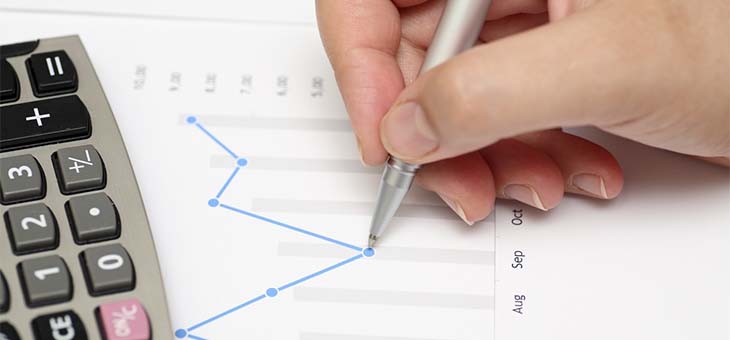Last month we warned you that the Australian Taxation Office (ATO) was targeting taxpayers who own rental properties and on Wednesday the organisation announced it was planning to double the number of audits it would conduct on taxpayer claims for rental deductions.
This puts tens of thousands of retirees firmly in the ATO’s crosshairs.
According to an Australian Housing and Urban Research Institute’s (AHURI) report, 30 per cent of older Australians had retired with a second property by 2014, growing from 25 per cent in 2002. The proportion of retirement wealth derived from investment properties grew from nine per cent to 15 per cent over the same period.
In the 2017–18 financial year, more than 2.2 million Australians claimed over $47 billion in deductions.
ATO assistant commissioner Gavin Siebert says that this year, rental deductions are a top priority.
“A random sample of returns with rental deductions found that nine out of 10 contained an error. We are concerned about the extent of non-compliance in this area and will be looking very closely at claims this year,” he said.
When it comes to incorrect claims, the ATO’s detection methods are becoming more advanced.
“We use a range of third-party information, including data from financial institutions, property transactions and rental bonds from all states and territories, and online accommodation booking platforms, in combination with sophisticated analytics to scrutinise every tax return,” Mr Siebert said.
“Where we identify claims of concern, ATO staff will investigate and prompt taxpayers to amend unjustifiable claims. If necessary, we will commence audits,” he said.
“Over-claiming robs the whole community of essential services and will not be tolerated by the Australian community. The Government recently allocated additional funds to the ATO to extend its program of audits and reviews of rental properties.
“We expect to more than double the number of in-depth audits we conduct this year to 4500, with a specific focus on over-claimed interest, capital works claimed as repairs, incorrect apportionment of expenses for holiday homes let out to others, and omitted income from accommodation sharing,” Mr Siebert said.
“Once our auditors begin, they may search through even more data, including utilities, tolls, social media and other online content to determine whether the taxpayer was entitled to claims they have made,” he said.
While no penalties will apply for taxpayers who amend their returns due to genuine mistakes, deliberate attempts to over-claim can attract penalties of up to 75 per cent of the claim. In 2017–18, the ATO audited more than 1500 taxpayers with rental claims, and applied penalties totalling $1.3 million.
In one case, a taxpayer was penalised more than $12,000 for over-claiming deductions for a holiday home when it was not made genuinely available for rent, including being blocked out over seasonal holiday periods.
Another taxpayer had to pay back $5500 because they had not apportioned their rental interest deduction to account for redraws on their investment loan to pay for living expenses.
“This tax time, our message to taxpayers is clear. If you are renting out a room or a property, any money you earn must be declared as income and any deductions you claim may need to be apportioned for private use,” Mr Siebert said.
For more information on holiday homes, visit ato.gov.au/holidayhomes
For more information on renting out all or part of your home, visit ato.gov.au/sharingeconomy
For general information on rental properties, including a suite of educational videos, visit ato.gov.au/rental
Is loan interest being claimed correctly?
If you took out a loan to purchase a rental property, you can claim interest (or a portion of the interest) as a deduction. However, if you use some of the loan money for personal use, such as paying for living expenses, buying a boat or going on a holiday, you can’t claim the interest on that part of the loan. You can only claim the part of the interest that relates to the rental property.
Do you know the difference between capital works and repairs?
Repairs or maintenance to restore something that’s broken, damaged or deteriorating are deductible immediately. Improvements or renovations are categorised as capital works and are deductible over a number of years.
Initial repairs for damage that existed when the property was purchased, such as replacing broken light fittings or repairing damaged floor boards, can’t be claimed as an immediate deduction but may be claimed over a number of years as a capital works deduction.
Do you have a holiday home?
A holiday home is different to a rental investment property. A holiday home is generally a private asset you use for family holidays, for which you cannot claim expense deductions.
However, if you let your property out at ‘mates’ rates’ (i.e. below market rates to family and friends) you can claim expenses up to the amount of income you receive. If your property is genuinely available for rent – which means making it available during key holiday periods, keeping it in a condition that people would want to rent it, and not unreasonably refusing tenants – it becomes more like a rental investment property and you can claim deductions for the days it is either rented or is genuinely available.
Have you kept records?
The No.1 cause of the ATO disallowing a claim is taxpayers being unable to produce receipts or other documents to support a claim. Furnishing fraudulent or doctored records will attract higher penalties and may also result in prosecution.
Do you have a rental property? Are you sure you’re not overclaiming? Will these ATO targets affect you?
Related articles:
Retiree home ownership to plummet
Are you in the right area to retire?
Will new law affect Sisha’s will?

